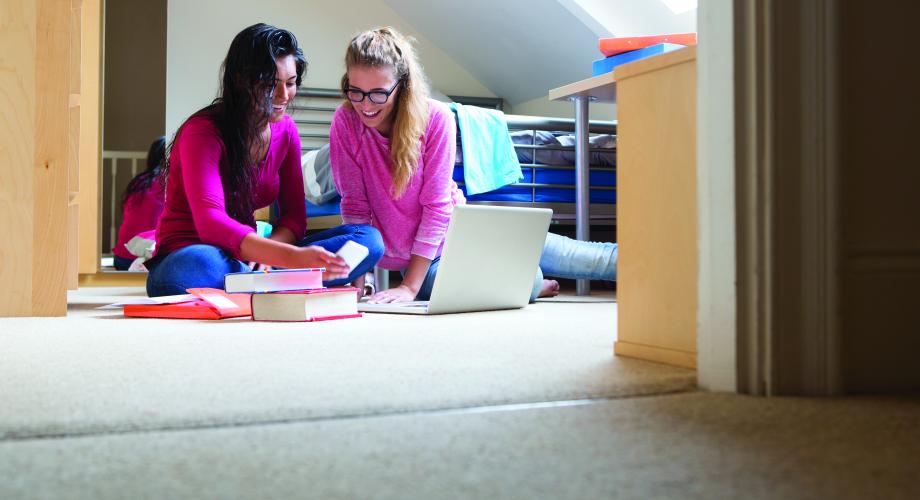With 2017 on the horizon, the team at Campus Apartments routinely looks at the trends of 2016 so it can predict what will become popular in the near future. What will phase out? What innovations will be coming down the pipeline in 2017?
It’s an exciting time in student housing management as the industry continues to experiment with new technologies to improve the leasing process and overall housing experience.
Based on the Campus Apartments’ portfolio of student housing properties in more than 24 states, these technology trends are gaining momentum and are expected to shape the future of student housing in 2017.
Utilizing Virtual Reality in the leasing process
Over the past year, virtual reality, commonly referred to as VR, has become a much more affordable and accessible technology. As a result, it is now beginning to appear in the student housing industry where it is being used to provide an immersive augmented reality experience for viewing apartments and communities. Students no longer must visit the property; they can take virtual tours of the space to see what their future bedrooms, study areas, clubhouses and lounges will look like. This eases the leasing process by allowing students to make quick initial decisions about whether an apartment or community appeals to their tastes. Virtual reality tools will also allow students to view and pre-lease apartments and communities that are still in the early development stages. Amazingly, students can see what their future homes will look like before the communities are even built. As a leader in innovative student housing technologies, Campus Apartments will soon have this virtual reality technology available at select properties.
Strengthened Cybersecurity
It is no longer viable to use low security consumer components in student housing wired and wireless networks because they do not provide adequate protection. At Campus Apartments, we understand that when residents connect to one of our properties’ Internet connections, they expect an adequate level of online security will be provided. Like everyone, students store important passwords on their computers as well as bank account and credit card information, so Campus Apartments ensures that they are as well protected as possible by the network from potential online security threats. To improve resident security, more student housing communities are turning to enterprise grade hardware and software in resident networks, which are the same technologies and components used to protect Fortune 500 companies. Campus Apartments’ sister company, Campus Technologies, is a leader in this level of technology.
Increased Emphasis on Wireless Density
Student residents are currently breaking records for the number of Internet-connected devices they own, including smartphones, tablets and laptops. Previously, wireless Internet connection services emphasized capacity, or bandwidth; now, connection services need to emphasize wireless density to support the immense number of connected devices. Campus Apartments’ 114 Earle development, located off campus at Clemson University and set to open in 2017, will combine high-density and high-performance Wi-Fi to meet residents’ increased connectivity demands.
Cord Cutting
More student residents are consuming video programming via streaming and are watching less traditional television and cable than ever before. Campus Apartments is actively planning for when cable becomes marginalized and irrelevant to most residents. That isn’t in 2017, but we’re laying a lot of groundwork for this further down the road.
As technology continues to become an increasingly integral part of the student housing experience, it is interesting to see how older technologies can be improved to better meet students’ needs and how new technologies, like virtual reality, can transform the student housing experience.
Axiometrics reports that more than 272,000 apartments are expected to come to market in 2017, making this an exciting time to be involved in student housing and explore how technology can improve the housing experience.
Andrew Marshall is Senior Vice President and Chief Information Officer at Campus Apartments.
